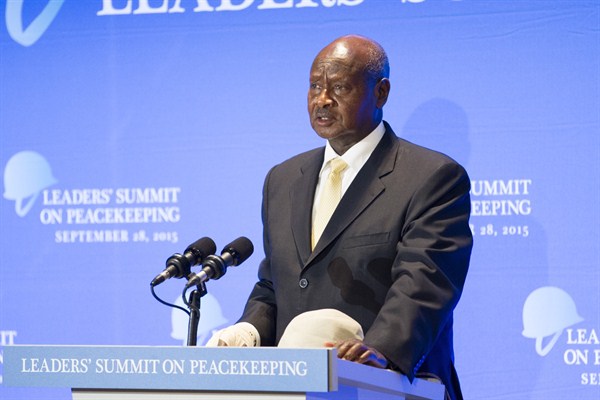When Ugandan President Yoweri Museveni took a surprise mid-September trip to Khartoum to meet his Sudanese counterpart, Omar al-Bashir, it solidified the unexpected rapprochement in what had been one of Africa’s thorniest relationships. Two of the continent’s longest-serving leaders, Museveni and Bashir have spent much of the past two decades sniping at one another publicly as each secretly worked to destabilize the other’s government.
What is bringing them together, curiously, is one of the issues most responsible for this enduring animosity: South Sudan. Uganda provided consistent support to the southern Sudanese rebellion, which ended with South Sudan’s official secession in July 2011. Less than three years later, a dispute within South Sudan’s political elite sparked a bloody conflict that has left tens of thousands of people dead and consumed much of the country’s northeast. Now Museveni and Bashir find themselves reunited by an economic interest in bringing this nearly two-year conflict to an end, but also realizing they have much more to discuss than just that.
Museveni came to power in 1986 following a successful insurgency and was immediately tasked with reuniting Uganda. It would prove particularly daunting in the country’s north, the birthplace of Museveni’s two most noteworthy predecessors, Milton Obote and Idi Amin. For years, the region remained a bugaboo for his administration, harboring political dissidents and birthing armed rebellions.

